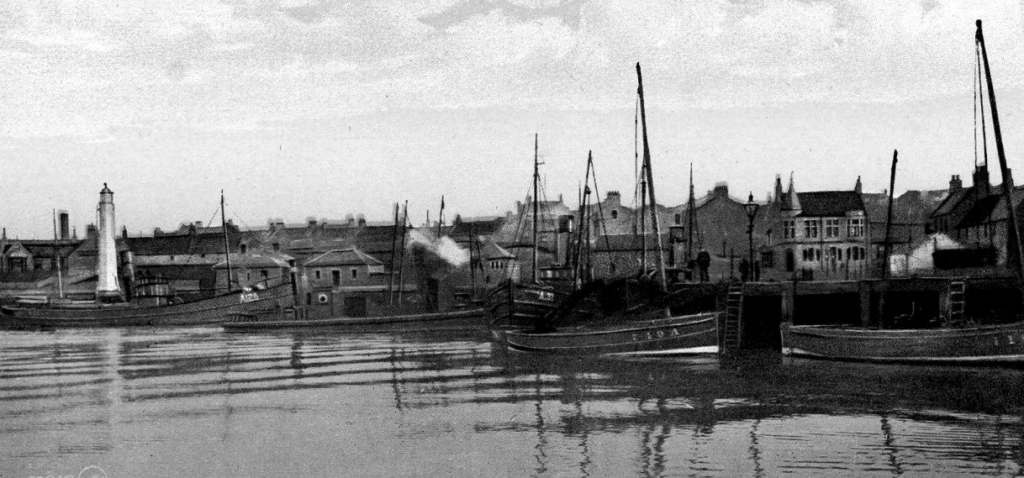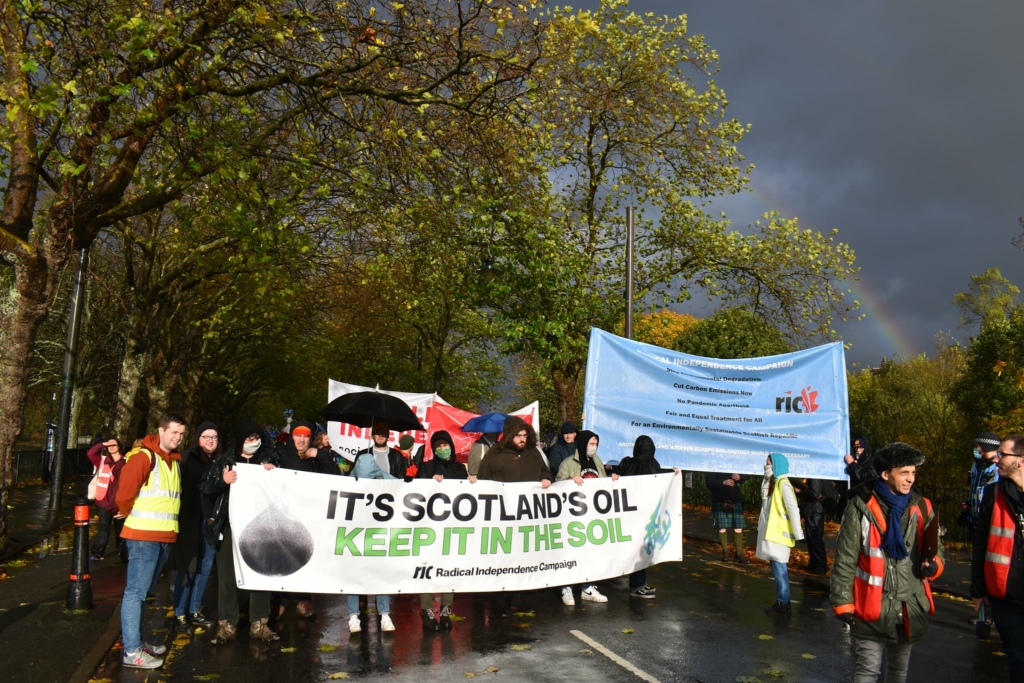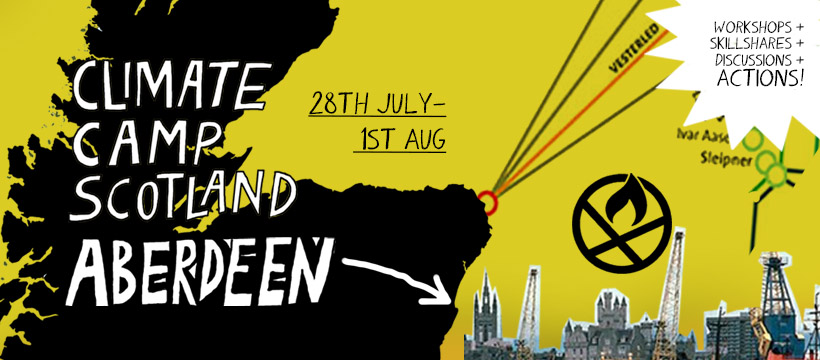As the climate crisis hits home, our governments are pouring fuel on the fire. Let’s stop them.
Britain is baking. England and Wales, for the first time, face the highest level of alert for a heatwave that could kill thousands of people. Across the channel, Portugal, Spain and France are battling some of the worst wildfires Europe has ever seen, with extreme heat causing mass fatalities.The Portuguese Health Ministry reported that between 7 and 13 July, one person was dying from the heatwave every forty minutes.
The climate crisis is on our doorstep. Yet, as anyone paying attention will have realised, the worst is still to come. We know that heatwaves, droughts and wildfires will become more frequent the more climate breakdown progresses. We know that in the next five years, we will likely breach the target of 1.5 degree warming worldwide set out in the Paris Agreement. And we also know that our governments are set on making things worse.
Amid recent political shenanigans, the UK government somehow still found the time to approve the Jackdaw gas field in the North Sea last month. The Cambo oil field, under fresh ownership, is back in play. And while Rishi Sunak (Tory leadership hopeful and richest man in the House of Commons) eventually bowed to pressure to introduce a windfall tax on oil and gas profits, he left open a convenient loophole that enables fossil fuel companies to avoid up to 80% of the levy if they invest in even more extraction. In total, twenty-nine new North Sea oil and gas projects are in the pipeline, which together could cause nearly one billion tonnes of carbon pollution.
Instead of using the energy crisis triggered by the Russian invasion of Ukraine to transform the UK’s energy system and end our reliance on oil & gas for good, the government is hellbent on setting us towards a path where it is impossible for the UK to ever reach its climate goals. But let’s not only dwell on an ever more unhinged Westminster government: While the SNP last year has abandoned maximum north sea oil and gas recovery and pays lip service to the notion of a just transition, even more progressive corners of the party remain entranced by fantasy technologies like hydrogen and Carbon Capture and Storage (CCS), which are viewed as a panacea to save a dying industry.
Even with the weakening appeal of an “It’s Scotland’s Oil!” narrative for independence, there is a lack of imagination concerning what Scotland’s future could look like unencumbered by fossil fuels, and how to build a democratic energy system outwith the hands of corporations, as well as a lack of knowledge on how damaging the fossil fuel industry really was for workers and communities across the nation.
A RMT bulletin from March bitterly called out the greenwashing from governments and corporations on “transitioning” and “green recovery”. Right now there is nothing to transition to, as Scotland’s manufacturing base has been left to rot. Meanwhile, over 35,000 workers have been made redundant in the last few years, a trend that will likely continue. Offshore workers, facing decades of boom and bust, know just as much as (or even more than) climate activists about the janus-faced nature of the fossil fuel industry – and most would switch to working with renewables at once if they could.
You might think that at least Aberdeen became rich on the profits of North Sea oil and gas, with every brick of the city being financed by the fossil fuel sector. It’s true that the fossil fuel industry’s influence can be felt everywhere, with oil sponsorship of art galleries, sports teams, and the city’s pride festival. However, the long history of Aberdonian communities’ resistance to, and destruction by, the oil and gas industry should not be forgotten. Back in the 1970s, when North Sea extraction began, Aberdeen bid to be the ‘hub’ city for the North Sea, and the local authority forced through major changes to accommodate the industry, including the demolition of the ‘Old Torry’ village to expand the harbour.


Today, Aberdeen City Council continues to prioritise the industry over its communities. It partnered with BP to deliver its illusory ‘net-zero’ targets and build a new hydrogen hub, pushing false solutions like carbon capture and hydrogen that only extends fossil fuel extractivism as excuses for real, vital change. As Yolanda Cowen from XR Aberdeen said back in 2020:
“You wouldn’t trust a tobacco company to provide cancer care, so why are our political representatives allowing the least trustworthy company to muscle in on the most pressing issue of our time? They are literally the last people who should be asked.”
As they try to expand the harbour area for an “energy transition zone” for fossil fuel companies, they also threaten to redevelop St Fittick’s park – the last freely accessible green space in Torry, Aberdeen. Taking away public space from one of the poorest communities in Aberdeen to hand it over to the oil and gas industry is bad enough – using the project as a greenwashing exercise is beyond cynical.
But it was always those who are least responsible for climate breakdown to suffer most from the fossil fuel industry, both here in Scotland and worldwide. Exxon and Shell have not only wronged communities next to their Mossmorran gas plants in Fife, but have committed decades of destruction and abuse in Nigeria and brutalised communities in Indonesia with the help of paid militias to protect their gas plant. BP is not only greenwashing on behalf of Aberdeen City Council, but has a long history of colonial theft, human rights abuse and ecological devastation in Colombia.


The truth is that neither council, governments nor corporations care about their communities, nevermind what is necessary for achieving climate justice. As a result, they will allow oil and gas to dominate Aberdeen for decades to come, and local, as well as global, communities to experience immense suffering.
This is why it needs climate activists, standing side by side with communities, fighting for climate justice and the true beginning of a just transition. Time and again, mass protests at climate camps have preceded major victories. In 2009 the first Scottish Climate Camp brought people from across the UK to Lanarkshire to join a local and national struggle against coal that by 2016 had seen the end of coal in Scotland. Starting in 2012, anti-fracking camps in England brought national attention to local struggles that saw a halt to fracking across the UK in 2019. In Dakota, USA, rolling resistance by the Standing Rock Sioux tribe brought global attention to their struggle to defend their land from oil pipelines.
Now is our time to transform Aberdeen into a beacon of energy democracy, spearheading Scotland’s transition into a country that prioritises people and the planet over profit. Let’s make it clear to the fossil fuel industry and their spokespeople in government that we will not stand idly by while they set the world on fire. Change will not be handed to us from above – help us fight for it.


Join us this summer at climate camp in Aberdeen, 28 July to 1 August: https://www.climatecampscotland.com

Help to support independent Scottish journalism by subscribing or donating today.

BBC weather reports 17oc tomorrow in Aberdeen for at least the next 2 weeks……
3 days of warm weather in the summer!
CALM DOWN
How old are you John?
What does it matter how old I am.
BBC weather reports 17oc tomorrow in Aberdeen for at least the next 2 weeks.
I’ll be going up to Aberdeen not this weekend but next to see the youngest laddie. I’ll post you a weather report.
Dare you take the risk?
17oc and if you trust the BBC weather dept heavy rain by the weekend.
I’m off to see my nephew in Peterhead in 3 weeks, let me know if it’s safe……..thanks
Peterheid? How long did he get?
It matters because all the evidence shows that people in their 60s and above aren’t really taking this on board and aren’t really as educated as they should be about the climate breakdown.
Within the climate movement, COP26 was largely viewed as a complete failure. Taking current policies as a baseline, they would have us hurtling towards 2.7 degrees of heating by the end of the century, the climate action tracker warned mid-summit that the complete inadequacy of 2030 targets reveals a massive credibility, action and commitment gap. Meanwhile, outside of the climate movement, governments and media have been quick to paint it as major progress.
Are you aware of any of these facts?
Yep, fully aware.
Means I can go back to Blackpool (Glasgow on sea) rather than spend a fortune on flights to Spain………..Happy days!
But it’s a heat APOCALYPSE, don’t ya know. If climate change doesn’t get us, the hyperbole will.
BTW The thermometer on the wall of my shed hit 33 this afternoon. The hens never ventured out of the hen-house all day.
It is striking how age seems to be such a strong predictor of political attitudes regarding issues with very long-term impacts, such as climate change, Brexit, and independence. Perhaps, for such issues, we should move to a voting system weighted by age-specific life expectancy. Younger people, after all, will have to live with the consequences of our collective choices for longer than people of my own vintage.
On the issue at hand, it’s hard to reconcile the flippancy of some of the contributions to this discussion so far with people being burned out of their homes in East London.
It seems to me that my generation have fallen for the hedonism of the 1960s rather than concern for the future. The frequent cycle of heat/storms/floods/droughts is now horribly well documented. There are small things we can do ourselves, but more importantly, to put pressure on big polluting business and lapdog governments. Heads in the (too hot) sand will not get us anywhere. If we care about future generations we need to take the climate emergency seriously.
The problem isn’t a moral one (pertaining to individual character and agency); it’s a systemic problem. Basically, we’re locked into a system (capitalism) that’s near total in the hegemony it exercises over our cognitive, evaluative, and practical behaviours, and those behaviours won’t change until that system breaks down. Many anti-capitalists believe that the serial global crises we’ve been experiencing in the last decade of so are a sign of this system breakdown.
As David+B points out on The Future of Degrowth thread, SNP and the Scottish Greens still believe that the system can be fixed, that, if we behave righteously with respect to the environment and to one another, we can continue more of less as we have been doing. For anti-capitalists, however, the task is not to try and fix the system but to help break it.
Are the two things in opposition and therefore in need of reconciliation?
And are you seriously suggesting that we should discriminate against some citizens on the basis of age (and just because they don’t vote the right way)?
@Lord Parakeet the Cacophonist, we already discriminate against some citizens on the basis of age. Perhaps book your annual cognitive impairment test early this year?
Do we? Can you give an example of how our current voting system is weighted by age-specific life expectancy, which is the sort of discrimination to which Paddy explicitly refers?
Don’t worry, I’m not suggesting this as something to campaign for! Whatever the pros, there are plenty of cons. It’s unachievable anyway as people in the older age bracket would vote against it… So it’s more of a thought experiment, though one that has received some attention, mainly in academic circles. It’s not discriminatory in the usual sense: everyone would be treated equally over their lifetime; what it means is that peoples’ views would be given diminishing weight with increasing age.
The real benefit of the idea is to focus attention on an important issue: how the young are likely to pay disproportionately for the choices of the old, especially on issues relating to climate change. My own life expectancy is that I pop my clogs in 2040, well before Scotland’s 2045 target for net zero; my grandson on the other hand can (at present) expect to live 45 years beyond it. It seems perfectly obvious to me that his views on this target date should be more influential than mine.
Another approach to increasing the influence of young people by tweaking the voting system would be to reduce the voting age to well below 16. One suggestion is to give the vote to all over 6 years old:
https://www.theguardian.com/politics/2021/nov/16/reconstruction-after-covid-votes-for-children-age-six-david-runciman
Unfortunately, none of this is practical politics just now, though it might become so in future. There just isn’t the time: climate action is needed now, not tomorrow or the day after.
2040? I’m already deep into extra-time and headed for penalties and ‘sudden death’. I’ll count myself ‘spared’ if I make it to twenty-to-nine tonight.
‘Unfortunately, none of this is practical politics just now, though it might become so in future. There just isn’t the time: climate action is needed now, not tomorrow or the day after.’
And the bind is that we’re today locked into a system of cognitive, evaluative, and practical behaviours (beliefs, values, and practices) – a ‘culture’ – that precludes the action required.
@Lord Parakeet the Cacophonist, and to continue your football metaphor, you’re playing anti-football:
https://en.wikipedia.org/wiki/Anti-football
It’s 20:46pm and he hasn’t posted anything for a bit. Should we be worried?
He had a decent innings I am sure.
I would only point out that “those who are least responsible for climate breakdown” would include the non-human life on Planet Earth, unless you want to blame the cows. I watched a couple of current affairs programmes on the heatwaves in the UK (from BBC) and more globally (on Al Jazeera) where the sufferings and immolations of animals and plants were hardly mentioned. Even the WWF guy on AJ’s Inside Story was talking abstractly about biodiversity loss. Just like we long needed to shift the framing of empires to appreciate their sustained and organised crimewaves, so we need to reframe our descriptions of the murderous humanist complex of forces bent on turning Earth into a hellworld (with or without nuclear apocalypse).
#biocracynow
For media types, the BBC’s page on Animal Welfare offers a microcosm of this absence of any big picture. Man fined for kicking a hedgehog, but nothing about the reasons why Britain is so nature-depleted (the WWF claims 30% of British birds are threatened with extinction, our land and rivers polluted, our sealife choking on plastic etc while climate-changing emissions go on and on).
https://www.bbc.co.uk/news/topics/cq23pdgvgxvt